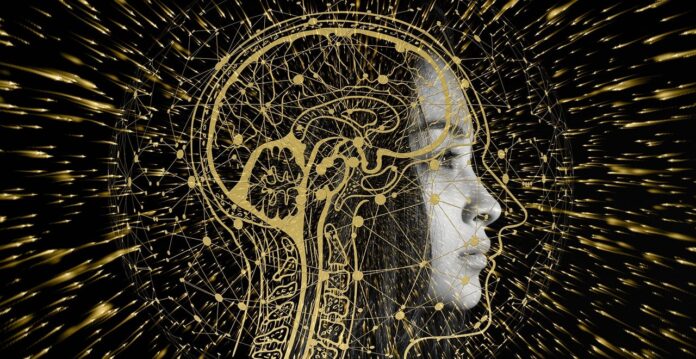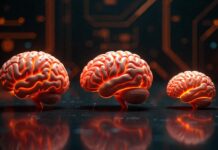
Artificial Intelligence (AI) has emerged as a transformative catalyst, altering the world in unimaginable ways. From autonomous vehicles and AI assistants to AI-assisted healthcare, AI has seamlessly integrated itself into the tapestry of our daily existence. Whether you are a newcomer venturing into the AI realm or an avid AI expert seeking to delve deeper, a wealth of knowledge lies within the pages of exceptional books.
Within this all-encompassing guide, we will uncover the top 10 books on artificial intelligence. Prepare to embark on an intellectual odyssey as we explore the captivating domain of AI, spanning its historical origins, ethical and societal implications, contemporary applications, and the boundless potential it presents, both for the better and the worse.
So, let’s start.
Related: First Book Written By AI About Meaning of Life and Death, 10 Must-Read Books on Simulation, Top 5 AI Smart Gadgets That Will Make Your Life Amazing, A Comprehensive History of AI: Origins & Evolution
1. “Artificial Intelligence: A Modern Approach” by Stuart Russell and Peter Norvig
Our journey starts with the essential reference in AI literature: “Artificial Intelligence: A Modern Approach” by Stuart Russell and Peter Norvig. This monumental work offers a comprehensive introduction to AI, covering an array of concepts, algorithms, and techniques. Widely regarded as a fundamental textbook in universities across the globe, it provides a solid foundation for anyone eager to immerse themselves in the dynamic world of AI. The book’s lucid explanations and real-world examples make it an invaluable resource for both students and practitioners, facilitating a deep understanding of AI’s core principles and its myriad applications in fields as diverse as robotics, natural language processing, and computer vision.
2. “Superintelligence: Paths, Dangers, Strategies” by Nick Bostrom
Nick Bostrom’s “Superintelligence” takes us on a profound exploration into the future of AI, delving into the tantalizing yet perilous prospects of creating superintelligent machines. This thought-provoking masterpiece ventures deep into the ethical and existential quandaries surrounding AI development, compelling readers to confront complex questions that lie at the intersection of technology and humanity. Bostrom artfully dissects the potential paths to superintelligence, the risks it poses, and the strategies we must employ to ensure its responsible development. Drawing upon philosophy, science, and technology, the book ignites a crucial conversation about the fate of humanity in an era of rapidly advancing AI. It’s a must-read for those who seek to navigate the complex terrain of AI’s future impact on society and ethics.
3. “AI Superpowers: China, Silicon Valley, and the New World Order” by Kai-Fu Lee
Kai-Fu Lee’s “AI Superpowers” presents a unique perspective on the AI landscape, unraveling the riveting competition between China and Silicon Valley. It offers profound insights into the economic and geopolitical dimensions of AI, shedding light on its global impact and the transformative potential it holds. Drawing upon his extensive experience in AI research and investment, Lee provides a comprehensive overview of the AI ecosystems in China and the United States. He explores how these superpowers are racing to lead the AI revolution and the implications of their rivalry for the global economy and job market. “AI Superpowers” is a compelling read for anyone interested in the economic and geopolitical aspects of AI and its implications for the future.
4. “Human Compatible: Artificial Intelligence and the Problem of Control” by Stuart Russell
Stuart Russell reappears on our list with “Human Compatible,” a compelling narrative that underscores the critical imperative of aligning AI systems with human values. This book casts a spotlight on the formidable challenges associated with creating AI that is not only proficient but also benevolent, ensuring its harmonious coexistence with humanity. Russell argues persuasively for a rethinking of AI development, emphasizing the need for robust control (AI alignment) mechanisms that prioritize human values and ethics. Drawing upon a rich tapestry of anecdotes and thought experiments, he navigates the intricate terrain of AI safety, raising profound questions about our role in shaping the future of AI. “Human Compatible” is an indispensable guide for policymakers, technologists, and anyone concerned about the ethical dimensions of AI’s evolution.
5. “AI: A Very Short Introduction” by Margaret A. Boden
Short on time but eager to grasp the essence of AI? Margaret A. Boden’s “AI: A Very Short Introduction” is your ideal companion. This concise gem distills AI’s historical evolution, core principles, and profound implications into an easily digestible format. It serves as a perfect entry point for newcomers, offering an accessible glimpse into the world of AI. Boden’s engaging narrative paints a vivid picture of AI’s journey from its inception to its current state, touching on key concepts such as machine learning, expert systems, and the Turing test. Readers will gain a newfound appreciation for AI’s impact on our lives and the exciting possibilities that lie ahead. This “very short introduction” serves as a great foundation for further exploration into the fascinating world of artificial intelligence.
6. “Machine Learning: A Probabilistic Perspective” by Kevin P. Murphy
“Machine Learning: A Probabilistic Perspective” invites readers on an illuminating journey deep into the heart of machine learning, with a focus on probabilistic models as the bedrock of AI. Authored by Kevin P. Murphy, this magnum opus is the definitive resource for those yearning to grasp the statistical foundations of AI. Murphy demystifies complex machine learning concepts, making them accessible to a wide audience. The book seamlessly blends theory with practical applications, guiding readers through topics such as Bayesian networks, hidden Markov models, and probabilistic graphical models. Whether you’re a seasoned data scientist or a curious novice, “Machine Learning: A Probabilistic Perspective” equips you with the tools and knowledge to tackle real-world problems and harness the predictive power of probabilistic models.
7. “The Hundred-Page Machine Learning Book” by Andriy Burkov
Despite its unassuming title, “The Hundred-Page Machine Learning Book” by Andriy Burkov packs a wealth of knowledge into a concise format. In its pages, essential concepts and practical insights for machine learning are distilled, making it accessible even to busy professionals seeking to master the intricacies of AI. Burkov’s book is a practical guide that walks readers through the key algorithms, techniques, and best practices in machine learning. It’s a valuable resource for those looking to rapidly upskill in this fast-paced field. The book’s brevity is a testament to Burkov’s ability to convey complex ideas succinctly, making it an ideal companion for anyone seeking a quick but comprehensive understanding of machine learning.
8. “Artificial Intelligence Basics: A Non-Technical Introduction” by Tom Taulli
Are you seeking an AI book that sidesteps technical jargon? “Artificial Intelligence Basics” by Tom Taulli provides an accessible, non-technical initiation into AI concepts. Tailored for a broad audience, this book demystifies AI, ensuring that it is approachable for readers of all backgrounds. Taulli covers a range of AI topics, from its historical roots to its contemporary applications in business and everyday life. The book’s conversational tone and real-world examples make it an engaging read for those curious about AI’s impact on society and industry. Whether you’re a business leader exploring AI’s potential or a student embarking on an AI journey, “Artificial Intelligence Basics” offers an excellent starting point to understand the fundamental principles of this transformative technology.
9. “The Master Algorithm: How the Quest for the Ultimate Learning Machine Will Remake Our World” by Pedro Domingos
Pedro Domingos embarks on a quest for a universal learning algorithm in “The Master Algorithm,” which could revolutionize numerous industries. This book offers a tantalizing glimpse into the future of AI, where the pursuit of a “master algorithm” holds the promise of transforming our world, reshaping how we live, work, and innovate. Domingos navigates the diverse landscape of machine learning, introducing readers to five different paradigms of learning algorithms. He sheds light on the strengths and limitations of each approach and explores their real-world applications, from personalized medicine to recommendation systems. “The Master Algorithm” is a thought-provoking journey into the heart of AI, illuminating the quest for the ultimate learning machine and its potential to redefine our understanding of intelligence and innovation.
10. “Life 3.0: Being Human in the Age of Artificial Intelligence” by Max Tegmark
Max Tegmark’s “Life 3.0” is a captivating exploration of AI’s profound impact on humanity. This thought-provoking work raises poignant questions about the societal and ethical implications of advanced AI, offering a tantalizing vision of the possibilities it presents for the evolution of humanity—challenging us to ponder the coexistence of humans and intelligent machines. Tegmark’s engaging narrative takes readers on a journey through the history of AI, from its humble beginnings to its current state of rapid advancement. He navigates complex topics such as superintelligent AI, consciousness, and the potential for AI to shape our future in profound ways. “Life 3.0” serves as a rallying cry for responsible AI development, encouraging readers to actively engage in shaping the future of AI and its role in our lives.
In summary
The realm of artificial intelligence is enormous, continually evolving, and filled with potential (both negative and positive). These top 10 books serve as a gateway to understanding its core principles, diverse applications, and boundless prospects. Whether you are a student embarking on an AI journey, a seasoned professional aiming to deepen your expertise, or simply a curious mind intrigued by the mysteries of AI, these books promise to enrich your knowledge and ignite your imagination.
Note: If you’re interested in similar articles, we’d recommend to check out:
- Top 5 Best Fiction Books About Artificial Intelligence
- Top 10 Life-Changing Philosophy Books You Must Read
- Top 10 Books For Curious Minds
- Will ChatGPT Destroy Content Creation?
- Best Non-Fiction Books About Multiverse?
- 10 Books That Will Make You Rethink Reality
- 10 Must-Read Books on Alternate History
- Top 5 Books On Thought Experiments
- Top 10 Books For Curious Minds
- Top 10 Books To Spark Your Curiosity
- 10 Must-Read Books About Parallel Universes
- Top 10 Must-Read Books On Future Predictions




























